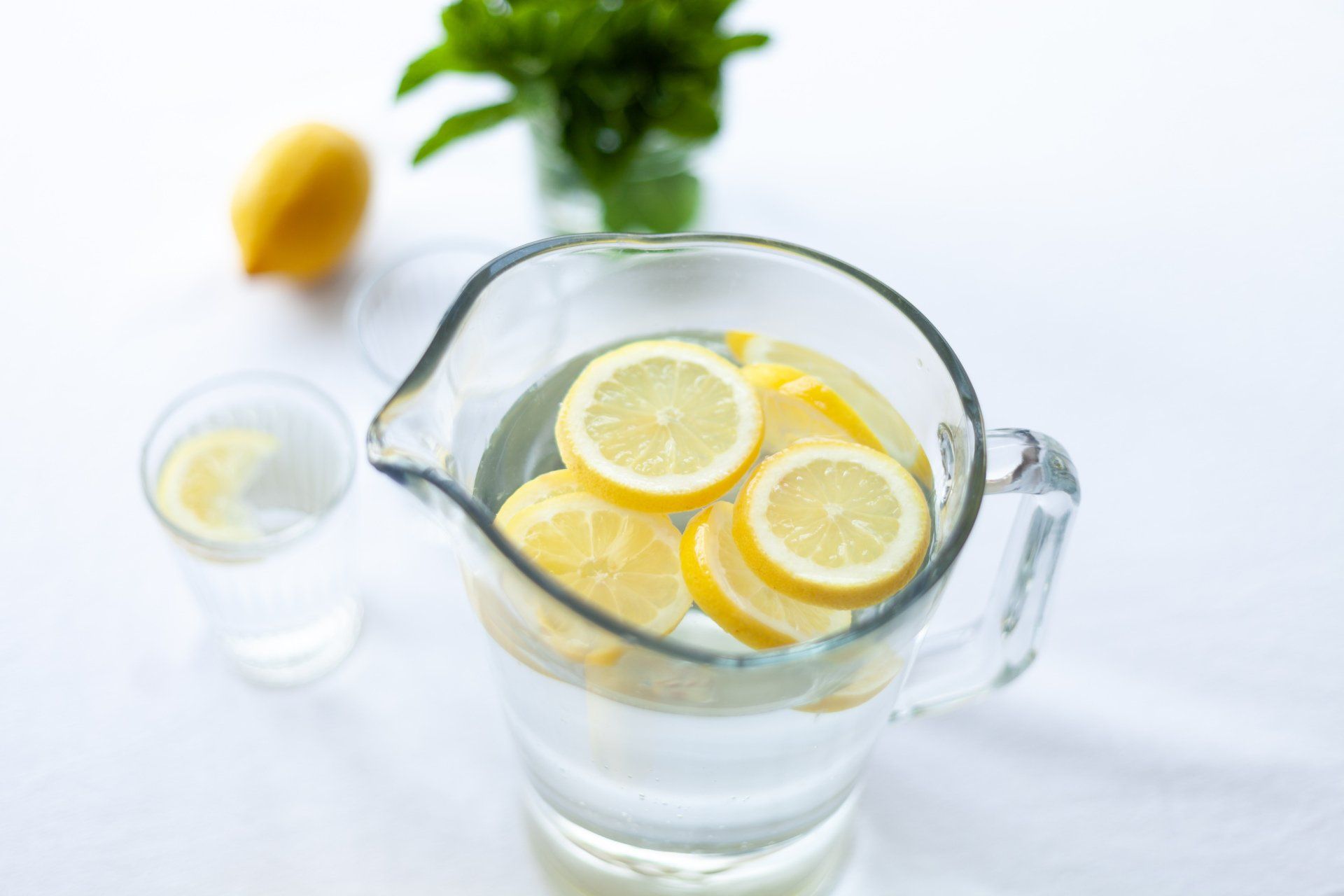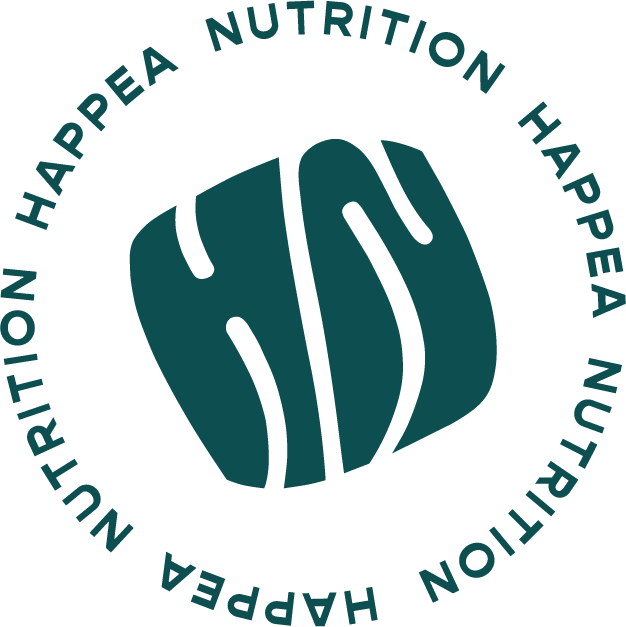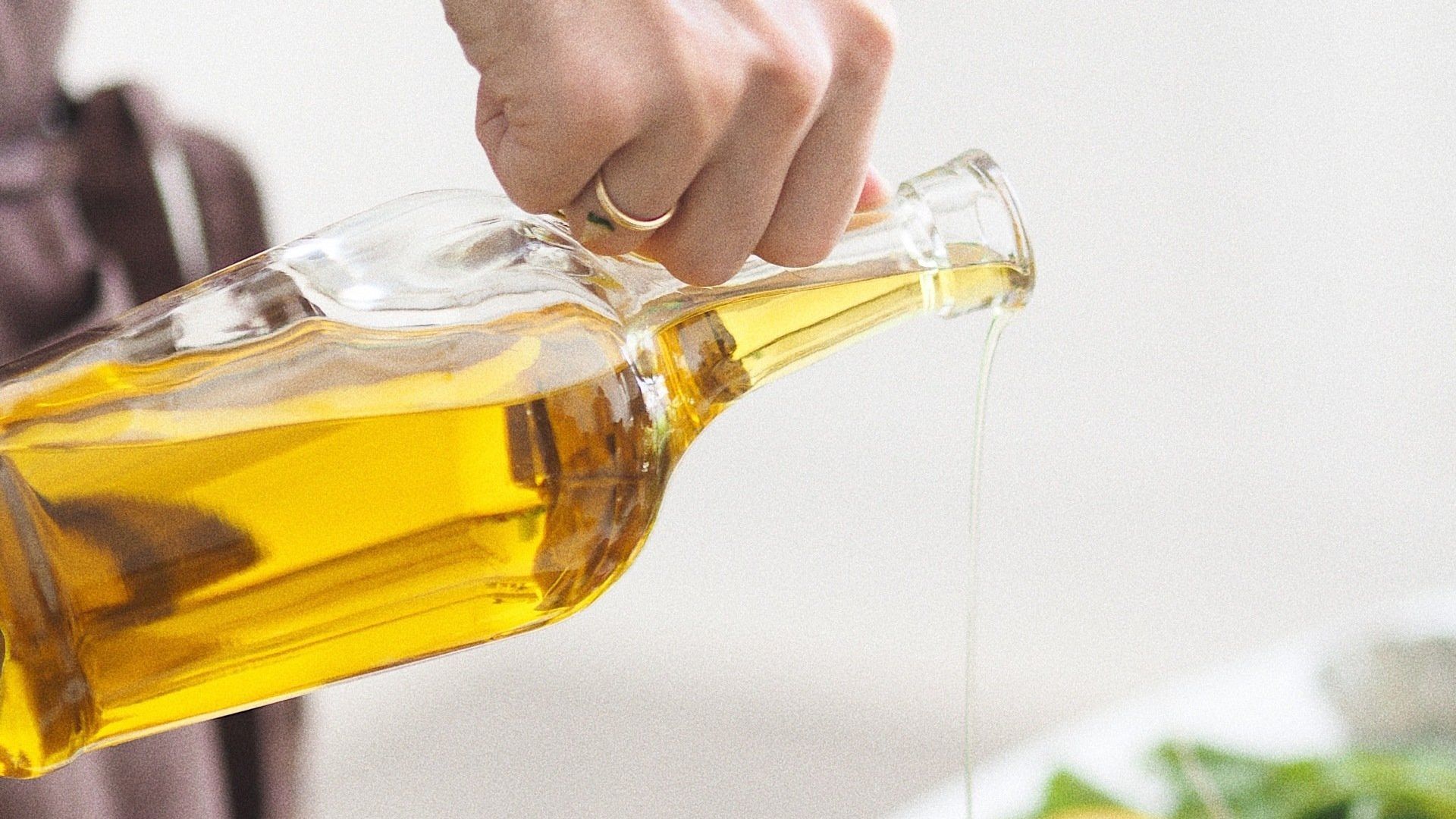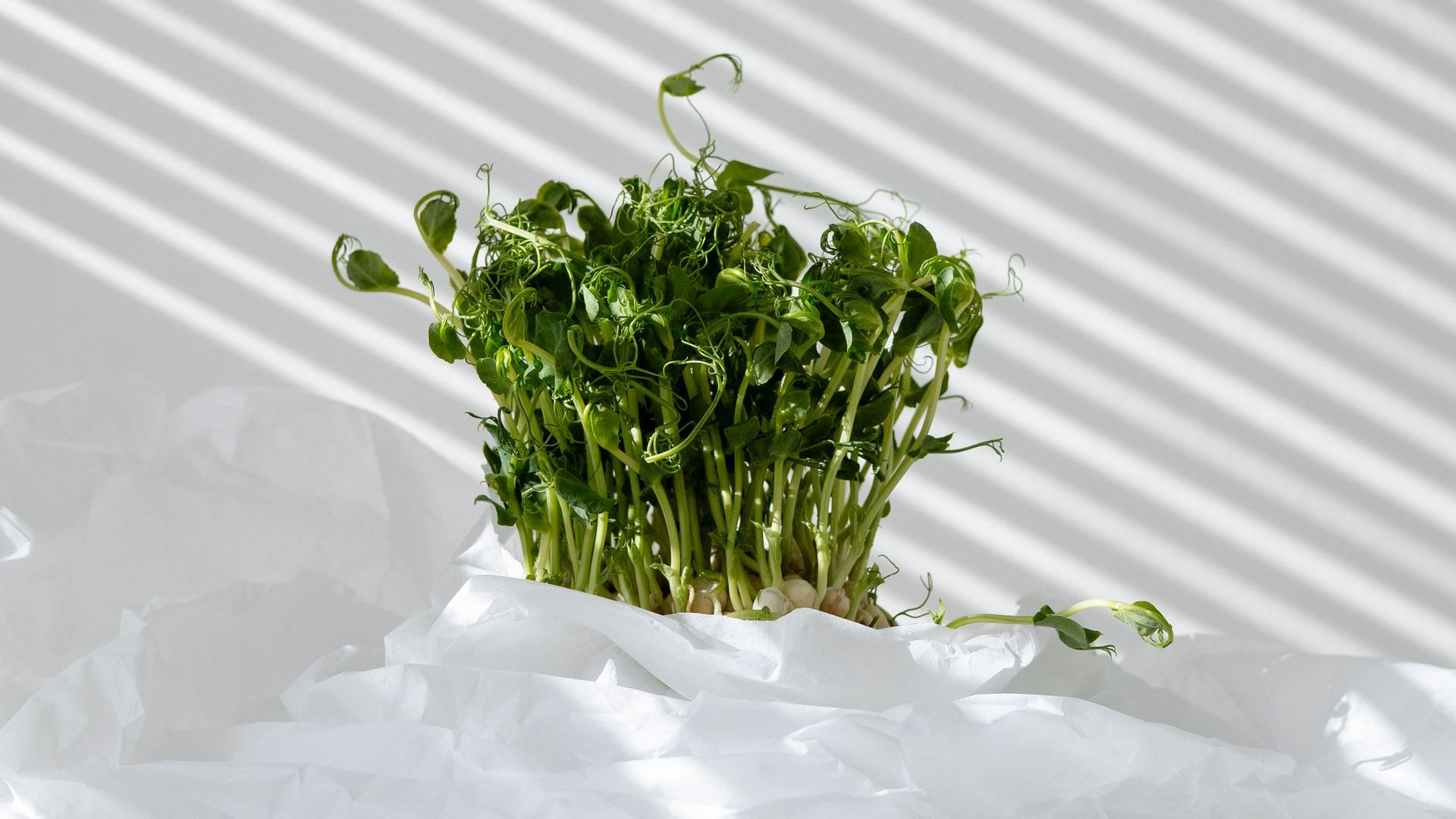Food is medicine?
I recently shared on my Instagram that I do not believe this mantra is helping people live healthier and of course received a lot of backlash. Here is why I, as a public health nutritionist and registered dietitian, firmly stand behind my words: food is NOT [just] medicine.
Before you get all angry at me for saying this, I want to clarify that I do believe in the power of a healthy diet in combination with other lifestyle behaviors. I am a dietitian, so of course I know how far positive lifestyle changes can take you. However, I do not like to make extreme statements that suggest one food = health and another food = disease and that's it. Statements like this are missing nuance and fuel misinformation, among many other problems discussed below.
Please also note that this article is not referring to any herbal medicines. Some people confuse traditional medicine with food as medicine and that's just not the same. Many herbal remedies are highly concentrated forms of herbs or spices which you could never reach by simply sprinkling said herb or spice over your food. Herbal and traditional remedies are a different discussion.
Anything is medicine
When you apply the same logic as is applied in the food is medicine approach, we could replace food with anything that has been found beneficial for health. Sleep is medicine. Exercise is medicine. Deep breaths are medicine. But just because these things are good for us, does not mean they can replace a holistic approach to health, which must include actual medicines when you get sick. Prevention is amazing, and using a lifestyle approach to health is also great, however in many cases not sufficient. There is a reason why our life expectancy has increased, and it's not food, it's modern medicine.
False sense of security
There are people who so deeply believe in the power of lifestyle that they will skip their preventive health screenings. That's not a good message. Time again, we see that healthy people can get very sick too. And the best option to increase chances of making it, is finding the problem early on.
The problem here is also that while most of us know that food is medicine is meant as a catchy slogan to encourage people to eat better, in addition to all other necessary screenings and interventions, too many social media "doctors" use it to truly discourage people from seeking effective treatments for diseases that often have nothing to do with what you eat. You see people making claims about mental health disorders being linked to diet and demonizing mental health medications or claiming you don't need vaccinations, you just have to eat healthy. Statements like this are simply not true but the food is medicine mantra fuels them, which is why I prefer to be an opponent of it altogether. We can promote a healthy lifestyle without making it seem that actual medicine is bad. A healthy diet helps prevent many health problems but can't protect you form infectious disease, genetic predispositions, or make pain go away.
Access to nutritious food is a problem
Many claim that when we can use food as medicine, we make health inclusive. This couldn't be further from the truth. In the US alone an estimated 34 million people people are food insecure. Around the world, the number is believed to be around 2 billion. And many of my neighbors in New York City also struggle to meet their nutrition needs, with 1.5 million people being food insecure in the city alone. Many of these people are people of color, immigrants, single mothers, children, or elderly people. Populations that have been historically underserved and have poorer health outcomes to begin with - not because of their diet but because of the systems that are in place.
When we hear food insecurity we might think of hunger and malnutrition but the two aren't the same. Food insecurity is defined as "lack of consistent access to enough food for every person in a household to live an active, healthy life." Often, the cheaper, processed, shelf stable, and filling but not very nutrient-dense foods will be the best option for people who are food insecure. Many people who live in so called food deserts may even have obesity, high blood pressure, or type 2 diabetes because what they have access to are foods that aren't health-promoting.
Telling someone who can't feed their family that food is medicine, but not helping them actually access said "medicine" bothers me.
Victim blaming
And we are quick to shame people for making less healthy choices. Once disease occurs, especially in those historically underserved communities, we often jump straight to vicim blaming. However, the problem is not a lack of knowledge and screaming EAT MORE VEGGIES won't help when the problem is lack of access to healthy foods, lack of safe space to be active, lack of time, lack of support, lack of access to healthcare and prevention, lack of access to education... I could go on for hours. Most people know exactly how they should eat, they just can't.
When people don't have access to our proposed solution, the solution is bad. Insurances don't cover nutrition counseling for most people, and even if they did, those with the worst health outcomes often can't afford insurance plans that would cover nutrition visits. Insurance plans wait until you develop a disease and then you can see a dietitian. But many insurance plans cap the visits at a ridiculous number like three sessions or so per year. Seeing a dietitian three times per year is like going to the gym thee times per year, especially if you are starting with no knowledge at all: better than nothing but not very meaningful.
Food elitism
Who can easily access all the produce, supplements, and decide between two types of sprouted, gluten free bread? People who have the luxury of choice. Moralizing food only pushes the idea that you need to be wealthy to be healthy.
While we are out here debating which ingredients are to be avoided and whether we should use pink Himalayan salt or Kosher salt, there are people who have to choose between eating today or tomorrow. I'm not saying you should not worry about what you eat because others don't have a choice. However, we have to acknowledge food as medicine is only there for the lucky ones who do have a choice, therefore only increasing the gap that exists between who is allowed to live a healthy life and who is not.
Food as medicine sounds like an inclusive and positive message. But when you look deeper it's the complete opposite. It is positive when it stays in the circles that have the luxury of choice and access to professional services. Once it trickles down to people who struggle to put food on the table, it's tasteless - just like that salad you had sans dressing.
Eating disorders kill too
There are many problems outside of the ignorance of this statement. Food is medicine is one of the many ways we normalize disordered eating. It can start as a simple "wellness journey" and suddenly you are afraid to eat anything that you didn't grow yourself. It moralizes food and fuels feelings of shame and fear around food, especially for those already vulnerable.
Why does that matter? It is estimated that 28.8 million people in the US, will have an eating disorder in their lifetime. Disordered eating has increased exponentially since 2020, which is not so surprising when you look at the content we are exposed to on social media these days.
Eating disorder are one of the deadliest mental health disorders, second only to opioid overdose. One person dies every 52 minutes as a direct result of an eating disorder. That's over 10 thousand deaths per year. And it's not just the organ failure that kills those individuals. Unfortunately, many people with eating disorders are likely to attempt suicide. Is it really worth it, when we have so many better ways to promote healthy eating than creating fear and morality around food? I personally think it's not. I liked it better when we said "eat the rainbow" and "fuel an active life". Sounds much more fun!
Food is more
Food can promote health or disease, sure. But food is also so much more. We eat for special occasions, we have a cake to celebrate birthdays, we have a feast to celebrate big holidays, we remember our ancestors and the history of our culture by eating certain foods, we can connect with the people we love and create new connections over food, we express love by preparing a hearty meal, we can be transported to childhood with a simple meal.
There is space for both in a healthy life. We can care about our health but also acknowledge that we love to indulge every now and then. Let's not strip food of the emotional meaning and cultural significance it has. It's a sad life to just look at food as nutrients.
Actual medicine is life saving and necessary
But so stigmatized, especially when it is intended to treat "controversial" diseases like depression or obesity. There is a strong link between some diseases and lifestyle. But even then food alone is not always the answer. We have seen the amazing effects we can reach when we help people with medications. It's so easy to shame people for wanting an easier life when your health is good. But why are we making things so complicated just because we want to moralize choices? If we have safe solutions, why not use them?
Let's take heart disease for example. We know there is a lot you can do to prevent it with nutrition. Even once it occurs, it may be manageable with dietary changes. But in many cases, you will need more than food. Physical activity or stress management are an essential piece of the puzzle. But some people may still be at high risk, even with extensive lifestyle changes. Familial hypercholesterolemia for example is a genetic disorder in which cholesterol accumulates and you will likely need statins to lower bad (LDL) cholesterol, even if you have an extremely healthy lifestyle. This is just one example of many possible scenarios in which you can't eat yourself healthy.
Regardless of our genetic predispositions and circumstances, no one should live a life where having a donut or a burger every now and then is 100% off the table. It's a privilege of those born with a genetic predisposition to stay healthy no matter what and gatekeeping the "balanced" lifestyle isn't fair. Medicine helps everyone live a life where fun is allowed to be part of staying healthy. And joy is medicine too!
Us versus them narrative
Unfortunately, food is medicine further fuels the "pill pushers" versus "holistic healers" narrative. I don't know many doctors who wouldn't recommend lifestyle changes to people who would benefit. Just because someone is practicing medicine according to the guidelines, does not mean they do not care about your daily habits at all. Medications help people live better, longer, and more free. In many cases they make it possible for people to stay active. It is harmful to create a gap between medicine and lifestyle because they belong together. The only person who suffers is the patient, who ends up having to choose between one or the other.
I know many people are worried about pharmaceutical companies but just because there are problems with big companies, be it in pharma, food, or any other area, does not mean that everything they produce is bad or that the quackery works. We can criticize how companies do business without undermining the importance of some of the products they sell. Also, have you ever noticed how nobody in the holistic and functional field ever criticizes the questionable practices and predatory marketing of supplement companies.
The "pill pusher" narrative is a pre Sunshine Act relict which is just as misinformed as anything else in the functional medicine field. Today, you can look up your doctor and see if they have financial ties to pharmaceutical companies and in what capacity they work with these companies. There is no conspiracy. You can choose another physician if you think the one you are currently seeing is biased. It's better to get a second opinion that to not get proper treatment because you felt that the vibe was off.
There is a way to practice good medicine, recommending lifestyle where necessary and prescribing the right medications for each condition. It should not be us versus them but how we can connect and help the patient together.
Appeal to nature fallacy
Because we are often so scared of the unknown, and the world has changed rapidly before our eyes, the trend recently is that anything natural is good and unnatural is bad (aka the appeal to nature fallacy). That's why food as medicine is so popular with the masses, it's easy to understand. No science degree is necessary to understand that salad = good. There is also a narrative of going back to the roots and eating like our ancestors. Unfortunately, part of the rapid changes we have witnessed is having ways to prevent and cure diseases that killed our ancestors in days or hours. Many of us, including me, wouldn't have made it past infancy without modern medicine.
I often hear people say that xyz foods are "known to be" healing and why isn't there more research about them... except there is! Look up any food you think has healing properties and there likely are research papers on it. Once a compound is found to be truly helpful, I can guarantee you, it will be used in formulations. Food compounds can be beneficial when extracted and highly concentrated. But in the form of food, they don't do much, outside of supporting your general health.
Does it mean you aren't allowed to eat chicken soup when you're sick? No. The black and white thinking is exhausting. There can be little evidence for something but it can still help you when you aren't well. Let's just stay in our lines and not make chicken soup a cure-all. And let's not deny that Tylenol is much more effective for lowering a fever than your soup.
Bottom line
Food is amazing and supports health. However, we aren't in a position to promote food as medicine for all because millions of people don't have the luxury of choice. These people aren't far away in developing countries, they might be your neighbors.
Additionally, food alone can't treat a single disease and prevention is also complicated because genetics play a huge role. Using this mantra pushes all responsibility on the consumer and away from the systems that are in place, preventing us from reaching optimal health. It's a sedative that satisfies a few, leaves many where they are now, and takes away responsibility from policy makers to propose a true reform that would actually benefit the public's health.
It should never be food/lifestyle OR medicine. Let's create a world where healthy lifestyle habits and effective medical interventions can happily co-exist without attaching moral value to one or the other. We all have different needs and abilities and that's fine.
Sources
Food Insecurity in New York City
Overlooked & Undercounted 2021: Struggling to Make Ends Meet in New York City
The State of Food Security and Nutrition Around the World 2022
Eating Disorders Are on the Rise
The American Heart Association Diet and Lifestyle Recommendations
Familial Hypercholesterolemia (FH)
Analysis of Select Dietary Supplement Products Marketed to Support or Boost the Immune System
Share this



